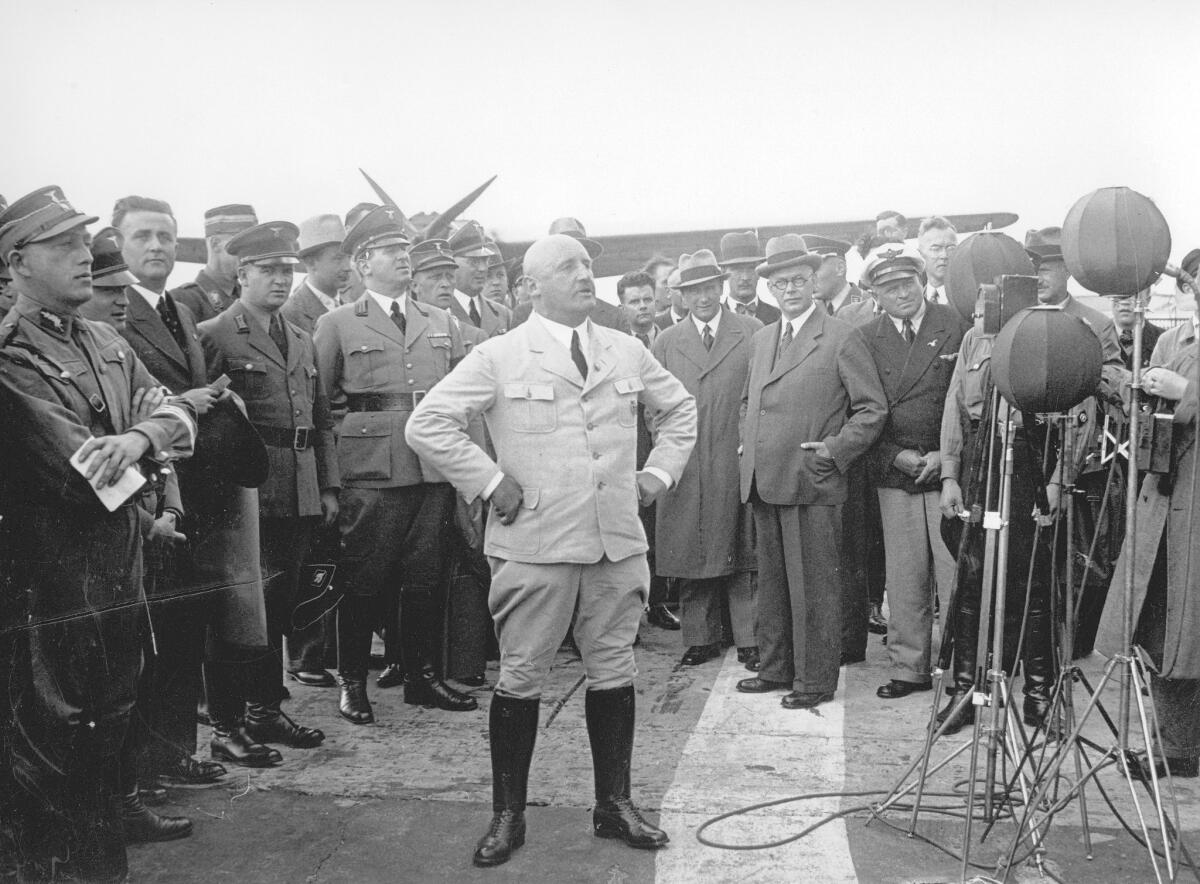Restraints on speech a complex issue

Just after 2 a.m., the man with the cold smile strode into the gallows, manacled at the wrists. He shouted at the witnesses, at the interpreter, at his executioner. He sneered. His face disappeared under a hood and a door swung open beneath his feet.
Nazi Julius Streicher never pulled a trigger in the Second World War. He never ordered anyone to die. He was a soldier in the First World War, not the second. But Nuremberg judges found him guilty of crimes against humanity and saw fit to sentence him to death for what he had written during the war. American soldiers carried out his execution in 1946.
Western society expressed universal horror this week over the extrajudicial killings of those involved in the publication and dissemination of an irreverent, left-leaning satirical weekly in Paris. The attack was denounced as barbarism, apparently perpetrated by a narrow subset of Islamist fanatics.
But the largely forgotten execution of Streicher serves as a reminder that Western society also has set limits on what is deemed acceptable speech. Few would suggest that there is moral equivalence between the terrorist mass killing of cartoonists for purported blasphemy and the judicially sanctioned execution of a Nazi war criminal. But the two extremes point to the complexity of any effort to restrain speech.
“We can’t be so arrogant as to deny the fact that we’ve made this mistake before,” Los Angeles intellectual property attorney Donald Zachary said. “What we should learn from it is we should never make that mistake again. We should be happy we advanced to the point where we do not kill people for speech, but it wasn’t always so.”
The United States, USC law professor Jonathan Kotler said, has elevated free speech “to the rank of almost religiosity.” But, he said, “the problem is, we treat the world through American eyes. The rest of the world treats speech differently.”
The United States has its own grim precedents, predictably during war. The 1918 Sedition Act led to the imprisonment of several anarchists, particularly women. But none was threatened with death.
Nearly a century later, in September 2011, the drone strike slaying of militant propagandist Samir Khan was explained as an opportune moment: The main target was terrorist suspect Anwar Awlaki, and Khan was nearby. They were American citizens, but Khan, 25, wasn’t suspected of planning attacks or shooting at soldiers. His crime was publishing Al Qaeda’s Inspire, a digital magazine written in Khan’s American vernacular, preaching the undoing of the U.S government.
In the United States and most Western countries, blasphemy, speech that defames the divine, is not a crime. Crimes involving speech are more likely to fall into the categories of incitement or sedition.
In the case of Streicher, the tribunal acknowledged in his indictment that he was never involved in the planning of war crimes, nor was he involved with policies that led to war. For this, he was acquitted of crimes against peace, one of the two charges against him.
But the judges found that he was guilty of crimes against humanity. “Week after week, month after month, he infected the German mind with the virus of anti-Semitism and incited the German people to active persecution,” the indictment said.
Streicher published Der Sturmer, a font of virulent anti-Semitism in print and cartoons. Many of the modern tropes of anti-Semitism found a place in the horrific depictions of Jews as rapists, murderers and worse; some entries relegated them to subhuman, monstrous status and called for their extermination.
By contrast, the French journalists who died Wednesday were apparently targeted not for calling for violence against Muslims, but for ridiculing their prophet, Muhammad.
David A. Lawton, a Washington University professor who has studied and written about blasphemy, said even those cultures that have laws against blasphemy do not usually apply them to simple irreverence.
The most famous recent accusation of blasphemy perhaps was that lodged against novelist Salman Rushdie, who endured death threats and a fatwa by an Iranian ayatollah after he published “The Satanic Verses,” which some Muslims took as an insult to Muhammad. “This religious totalitarianism has caused a deadly mutation in the heart of Islam and we see the tragic consequences in Paris,” he said after the attacks Wednesday.
In a bit of irony, laws against blasphemy in Pakistan that have faced condemnation from Western nations are themselves rooted in English law. Beginning in 1676, England had laws that permitted the imprisonment or execution of blasphemers. Its last known subject was Thomas Aikenhead, a Scottish student executed in 1696 after he referred to the New Testament as “the History of the Impostor Christ” and the Old Testament as “Ezra’s Fables.”
It’s unnecessary to reach into pre-Enlightenment England to find an example of capital punishment for speech. Wartime England heard regular broadcasts from American-born fascist William Joyce, who was raised in Ireland and England. The Tokyo Rose of Europe, Joyce emigrated to Germany in 1939 and broadcast radio messages urging Britain to surrender. He was found by British forces in March 1945 and returned to England for trial.
He was found guilty by a jury of high treason, and the penalty was death by hanging.
More to Read
Sign up for Essential California
The most important California stories and recommendations in your inbox every morning.
You may occasionally receive promotional content from the Los Angeles Times.










